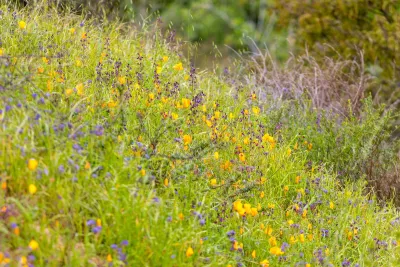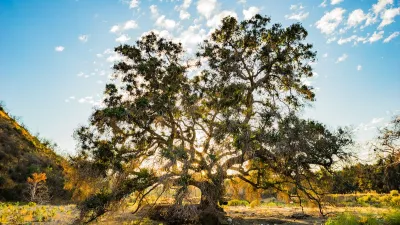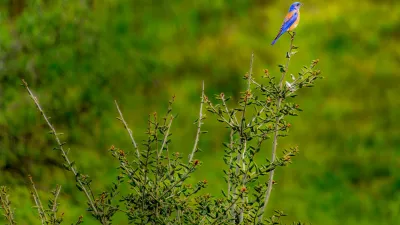TreePeople’s 4th Annual Urban Soil Symposium explored how climate gardening, soil health, and collaborative land management strategies can enhance urban resilience in the face of climate change.

The 4th Annual Los Angeles Urban Soil Symposium, hosted by TreePeople on March 7, 2025, brought together over 130 environmental practitioners to explore how landscapes can be reimagined in the face of climate change. Centered on the theme of Climate Gardening, the symposium examined the intersection of ecology, community, and land management. Discussions focused on how native plants, fungi, and green infrastructure can build resilience, particularly in areas impacted by events like the recent LA fires.
The event emphasized collaboration over conventional presentations, fostering connections between researchers, policymakers, and nonprofit leaders. Attendees explored TreePeople’s urban soils research and viewed informative posters from a variety of contributors. Examples of presentations included UCLA’s Kirsten Schwarz on democratizing soil testing post-wildfires and TreePeople’s own team advocating for circular soil systems that repurpose construction sediment into healthy, usable soil.
Beyond the science, the symposium encouraged attendees to reflect on their personal and philosophical approaches to land stewardship. An interactive art installation, The Mosaic Machine, prompted participants to consider how traditional, modern, ecological, or agrarian landscaping choices affect local watersheds. The momentum and ideas sparked at this year’s symposium suggest a promising path forward—where Climate Gardening helps reshape LA’s urban fabric into one that’s greener, healthier, and more adaptive to the changing climate.
FULL STORY: 4th Annual Urban Soil Symposium Digs Into Climate Gardening

Planetizen Federal Action Tracker
A weekly monitor of how Trump’s orders and actions are impacting planners and planning in America.

Congressman Proposes Bill to Rename DC Metro “Trump Train”
The Make Autorail Great Again Act would withhold federal funding to the system until the Washington Metropolitan Area Transit Authority (WMATA), rebrands as the Washington Metropolitan Authority for Greater Access (WMAGA).

DARTSpace Platform Streamlines Dallas TOD Application Process
The Dallas transit agency hopes a shorter permitting timeline will boost transit-oriented development around rail stations.

Parks: Essential Community Infrastructure — and a Smart Investment
Even during times of budget constraint, continued investment in parks is critical, as they provide proven benefits to public health, safety, climate resilience, and community well-being — particularly for under-resourced communities.

Porches, Pets, and the People We Grow Old With
Neighborhood connections and animal companions matter to aging with dignity, and how we build can support them. Here’s a human-scale proposal for aging in place.

Single-Stair Design Contest Envisions Human-Scale Buildings
Single-stair building construction is having a resurgence in the United States, where, for the last several decades, zoning codes have required more than one staircase in multi-story housing developments.
Urban Design for Planners 1: Software Tools
This six-course series explores essential urban design concepts using open source software and equips planners with the tools they need to participate fully in the urban design process.
Planning for Universal Design
Learn the tools for implementing Universal Design in planning regulations.
City of Charlotte
Municipality of Princeton
City of Camden Redevelopment Agency
City of Astoria
Transportation Research & Education Center (TREC) at Portland State University
US High Speed Rail Association
City of Camden Redevelopment Agency
Municipality of Princeton (NJ)





























